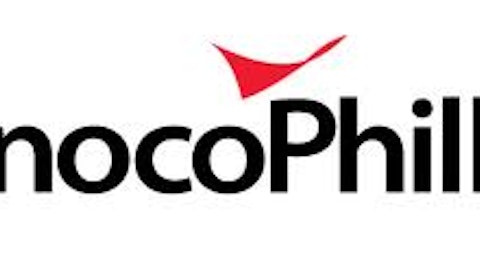BP plc (ADR) (NYSE:BP) is the epitome of a company with significant investment risks because of the consequences of the Gulf of Mexico oil spill in 2010, resulting in billions of dollars in fines and liabilities. It is easy to get caught up in the negative headlines, but the fact of the matter is that BP is a giant that operates profitably. The company has paid more than $24 billion related to the oil spill and estimates that it will have to pay a total of $42 billion to fully resolve its liabilities. These are staggering figures, but the markets have already discounted the bad news in the current stock price. Below, I will discuss whether the stock is worth investing in at this time on the basis of the company’s recently announced fourth quarter earnings.

BP has just announced its financial results for the fourth quarter and full year 2012. The replacement cost profit, adjusted for non-operating items and fair value accounting effects, was $4 billion for the quarter, compared to $5 billion for the same quarter in the previous year. For the full year, replacement cost profit was $17.6 billion in comparison with $21.7 billion in 2011.
Cash flow from operations for the quarter was $6.3 billion and $20.4 billion for the full year in comparison with $22.2 billion in 2011. At the end of the year, BP’s net debt was $27.5 billion down from $31.5 billion at the end of the preceding quarter, representing a gearing level of 18.7%.
BP’s upstream production of oil and gas, excluding TNK-BP, in 2012 was more or less flat at 2011 levels and in line with the guidance. Fourth quarter production, excluding TNK-BP, was 2.29 million barrels of oil equivalent a day (mmboed), which is 7% lower year on year.
BP’s downstream operations delivered record earnings for the year, and this was the fourth consecutive year of profit growth. In the quarter, in spite of the benefit of strong operations, refining margins were significant lower compared to the preceding quarter, and the planned outage at the Whiting refinery as part of the upgrade project impacted the quarter’s results.
Pursuant to the criminal settlement agreement with the DOJ, BP recorded an additional charge of $4.1 billion in the fourth quarter. The total net charge for the Gulf of Mexico incident at the end of the year was $42.2 billion. In this quarter, BP had an EPS of $1.25 per share, easily beating the $1.05 per share consensus estimate but down 21% year on year.
Asset Divestment & 2013 Production Outlook
The sale of BP’s interest in TNK-BP to Rosneft and related transactions expected to result in BP acquiring a 19.75% stake in Rosneft were agreed on in the quarter and are expected to be completed in the first half of 2013. In addition, during the quarter, BP agreed to the sale of non-core upstream assets in the North Sea and China and of the Texas City refinery and related assets. Excluding the sale of the stake in TNK-BP, BP has now achieved asset divestments totaling $37.8 billion since 2010 and completed its strategy of portfolio simplification a year ahead of schedule.
Oil and gas production is expected to increase in 2013 because of production from new projects and reduced outages for maintenance. Two major upstream projects began production in the fourth quarter with a total of five new major projects going online in 2012. The PSVM project on Block 31 offshore Angola, one of the largest subsea developments in the world, commenced production in early December and the Skarv field located in the Norwegian Sea began production at the end of the quarter.




